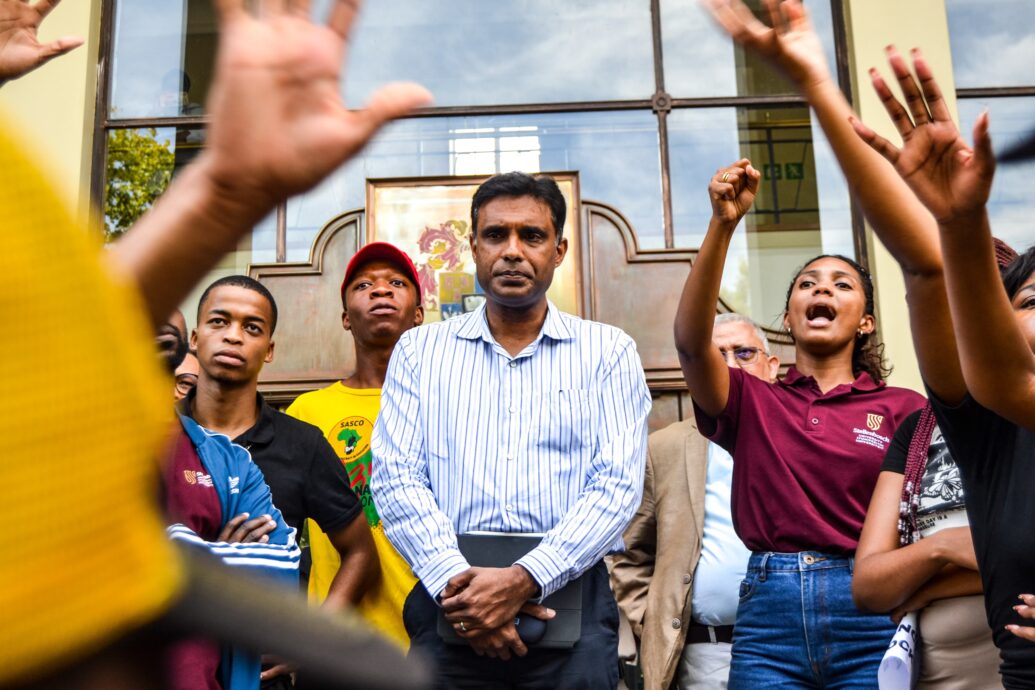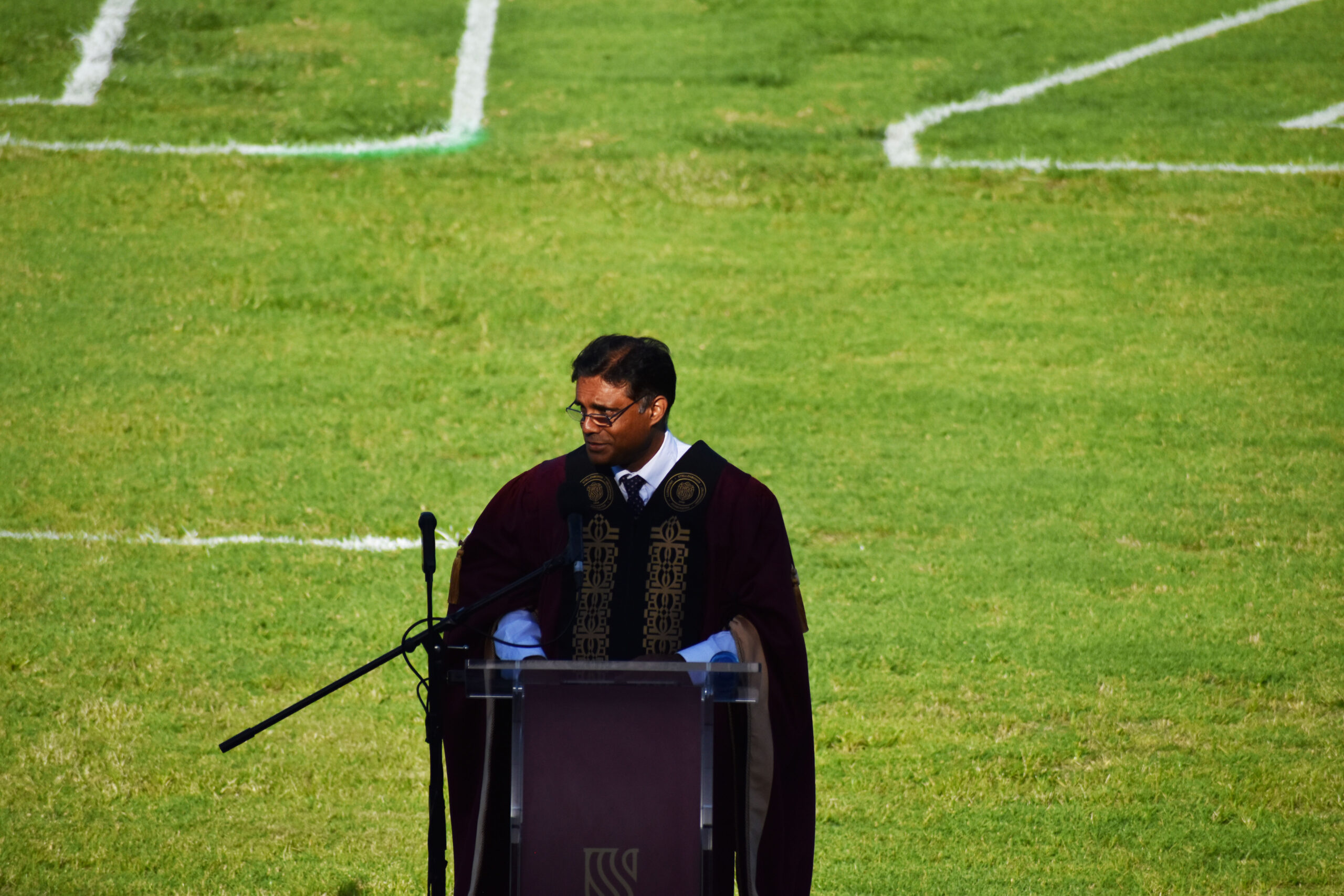by Flavia Davids

As the end of the annual registration period at Stellenbosch University (SU) draws near, the Stellenbosch University (SU) Student Representative Council (SRC) called on students to attend a mass meeting and peaceful protest on 19 February to address fee blocks, housing shortages, and registration delays. The mass meeting, which took place on the Rooiplein, was hosted nineteen days after the SU Centre for Undergraduate Bursaries and Loans (CUBL) announced on 31 January that students funded by the National Student Financial Aid Scheme (NSFAS) with accumulated student debt would be unable to register for the academic year unless their fees were settled. Roceshia Februarie, who heads the SRC’s social impact portfolio and forms part of the National Student Financial Aid Scheme (NSFAS) task team, addressed the students on Wednesday and updated them on the outcome of various meetings between the SRC and the university’s Rectorate. “[The SRC] met with them on Friday [14 February] and they said that on Monday [17 February] all of those students would be able to register. Many of them are sitting here today [19 February], wondering when they will be able to register.” Februarie further explained that student debt had accumulated to over R200 million and that the rectorate promised to disburse financial relief for students in the amount of less than R20 million to cover all student debt. “Over the past month, since January, the Rectorate has promised us funds for student debt. Our student debt has accumulated to over R200 million and the Rectorate has given us less than R20 million to cover all student debt,” said Februarie. “[The rectorate] promised us that all students with accumulated NSFAS debt would be able to register and that they would settle the matter with NSFAS. They have not allowed the students to register.”
The mass meeting and peaceful protest at SU followed two days after the onset of an academic boycott at the University of Cape Town on 17 February. As reported by Ashraf Hendricks for the GroundUp independent news publication, students at UCT began protesting on Monday against issues related to financial exclusion, student debt and accommodation. Ernst Calitz and Takudwa Pongweni of the Daily Maverick further reported that as of 20 February, more than 80 students had been left without accommodation at the tertiary institution and had been housed in campus offices without proper facilities. In Gauteng, the University of Witwatersrand (Wits) has also faced protest action at the start of the academic term on 12 February and engagement between the Portfolio Committee on Higher Education and the Wits SRC raised concerns about the tertiary institution’s policy that requires settlement of debt by students before registration. Amber Nieuwenheyzen, who serves as treasurer general of the SRC, implored the students attending the mass meeting to stand in solidarity with students who have faced similar issues in securing funding for registration and accommodation nationwide. “In unison with our fellow students across this nation, we are tired that the youth of South Africa are suffering when we are trying to make a change in our society,” said Amber Nieuwenheyzen, treasure-general of the SRC. “And in a university like Stellenbosch, where we are promised better opportunities, we’ve had to come together in a congregation like today and that is very sad.”
During the protest, chief operations officer Stan du Plessis and registrar Dr Ronel Retief addressed a communication to students who had been unable to register due to outstanding fees, informing them of the measures in place to assist them. These measures include the extension of the registration deadline until 28 February with further concessions considered on a case-by-case basis for eligible students, temporary access to learning platforms SUNLearn and FMHSLearn and the lifting of financial holds for NSFAS-funded students whose outstanding bursary payments cover their fee balance, students with confirmed bursaries or loans covering outstanding debt and students with outstanding debt of R10 000 or less who enter into a structured payment plan. Additionally, eligible students are able to apply for additional support via the Student Debt Working Group until 20 February.



